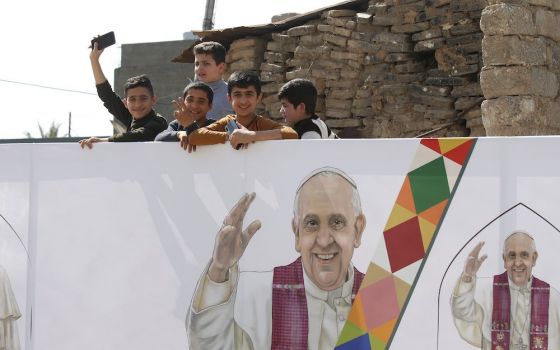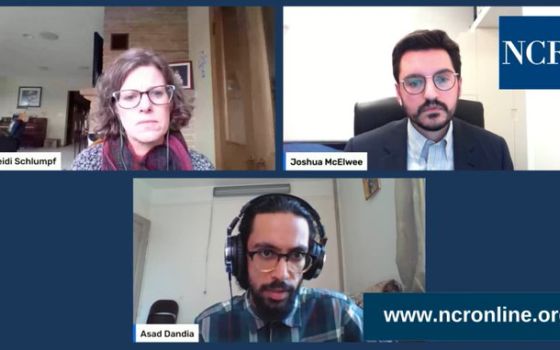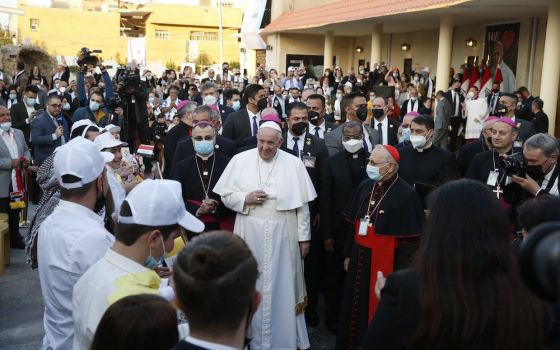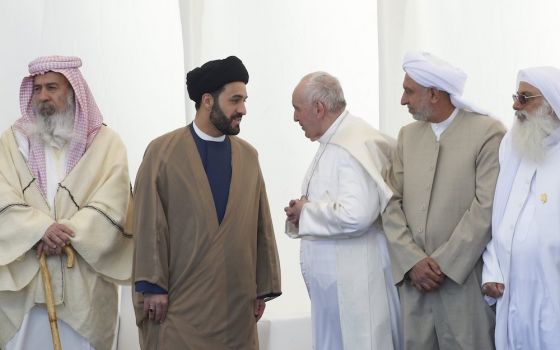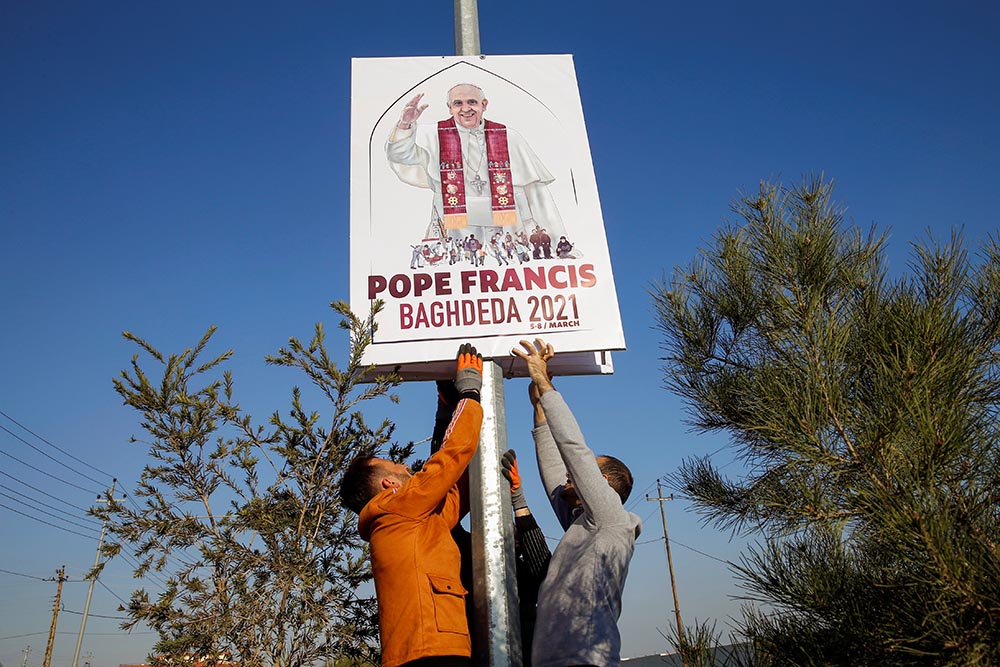
Volunteers secure a placard on a pole along a street in Qaraqosh, Iraq, Feb. 22. The placard shows the official logo, designed by Ragheed Nenwaya, for Pope Francis' planned March 7 visit to Qaraqosh, also known by its Aramaic name of Baghdeda. (CNS/Reuters/Thaier al-Sudani)
The Vatican sought to downplay the risks of Pope Francis visiting Iraq during the ongoing coronavirus pandemic, stressing that events during the March 5-8 journey have been planned to avoid crowds and to maintain social distancing measures.
In a March 2 briefing with journalists ahead of the trip, Vatican spokesman Matteo Bruni said such precautions "have been respected in organizing the journey and will be respected throughout the journey itself."
Bruni said most events for the visit will include only around 100 people. He also said that Francis will travel in a closed car inside the country, instead of the usual popemobile, partly to try and discourage people from crowding onto streets to try and see the pontiff.
Asked by NCR why Francis feels compelled to visit Iraq before the complete end of the pandemic, Bruni suggested the trip could be seen "as an act of love."
"An act of love for this land, for this people, for its Christians," said Bruni.
Francis' visit to Iraq, during which the pope is scheduled to visit six cities over three days, will be his first abroad since November 2019. He canceled all travel planned for 2020 due to the ongoing coronavirus pandemic.
The pope and those traveling with him are being vaccinated by the Vatican in advance of the journey. Like Bruni, local organizers have stressed that stringent social distancing and masking protocols are being put in place.
Archbishop Bashar Matti Warda, who leads the Chaldean Catholic community in Irbil, told NCR last month that organizers in preparing for a March 7 Mass with the pope in Irbil are strictly limiting the numbers of those able to attend, assigning seats and collecting phone numbers.
Advertisement
But coronavirus cases in Iraq have been on the rise in recent days, with the Worldometer coronavirus tracker reporting 4,690 new confirmed cases March 2. The Vatican's ambassador to Iraq, who had been expected to accompany Francis throughout his trip, has also tested positive for the virus and is currently in self-isolation.
Bruni highlighted three priorities for the pope's visit: encouraging the country's Christian community, which was especially persecuted in areas under Islamic State control from 2014 to 2017; pursuing interreligious dialogue with Muslims and others; and encountering Iraq itself as a country.
Bruni also made what appeared to be the Vatican's first direct comment about concerns for the pope's safety in the country.
Although violent attacks have largely subsided since the Iraqi government drove the Islamic State group underground in late 2017, there was a twin suicide bombing in Baghdad Jan. 21 and a rocket attack against U.S.-led coalition forces near Irbil's airport Feb. 15.
Bruni said it was "probable" that Francis would be using an armored vehicle while in the country. The pope is not known to have used an armored vehicle on any of his previous 32 visits abroad.
Bruni did not directly answer a question about whether U.S. or other forces might be helping ensure the pope's safety in Iraq, saying that organization of security details for papal trips are "always in the hands of the host country."





